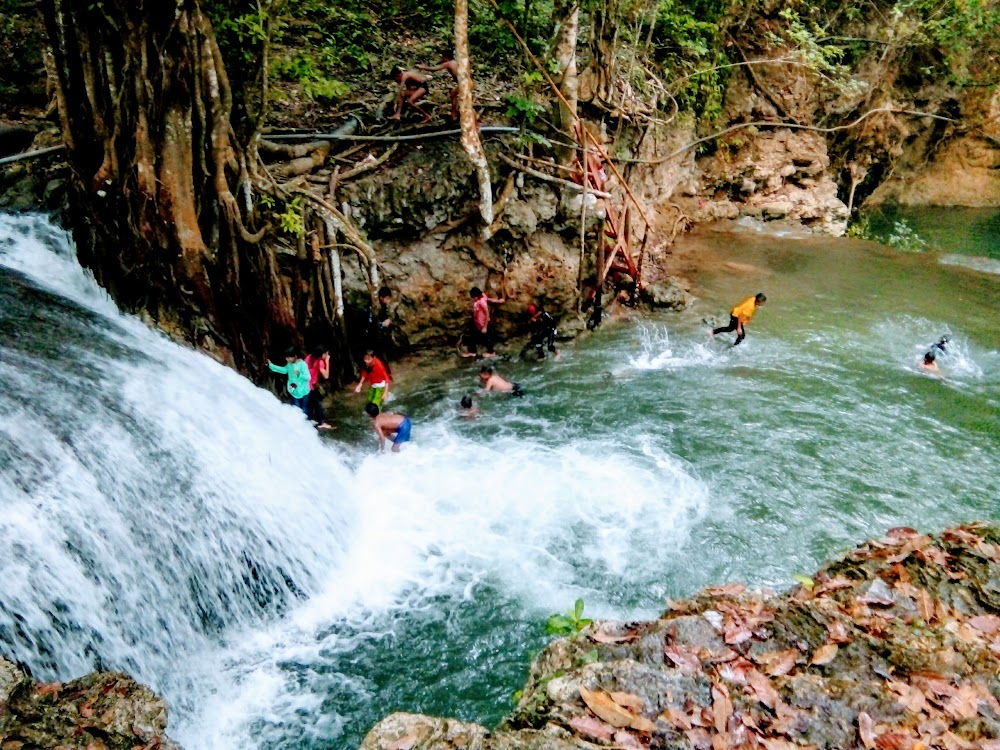Senaru Village (Desa Senaru)
Overview
Senaru Village, nestled in the northern part of Lombok in Nusa Tenggara Barat, Indonesia, is a hidden gem that offers visitors an authentic glimpse into the island's rich cultural tapestry and breathtaking natural landscapes. This quaint village serves as the primary gateway to one of Indonesia's most majestic wonders, Mount Rinjani. Its historical significance and the distinctive traditions of the indigenous Sasak people add layers of depth to an already enchanting visit.
Historical Significance and Cultural Heritage
Historically, Senaru has been a focal point for the Sasak community, the island's native inhabitants. The village has gracefully resisted the sweeping changes of modernity, allowing its ancient customs and ways of life to remain largely intact. Visitors are often struck by the harmonious coexistence of tradition and daily life, where historical houses with thatched roofs sit alongside vibrant gardens. The Sasak people's way of life, characterized by farming and artisanal crafts, offers an educational experience for those eager to explore cultures different from their own.
The Gateway to Mount Rinjani
Senaru holds significant importance due to its role in the Mount Rinjani trekking tours. The village serves as the primary base for adventurers preparing to ascend the second-highest volcano in Indonesia. The trek to Mount Rinjani is considered one of the country's most demanding yet rewarding journeys, offering spectacular views of a crescent-shaped lake known as Segara Anak, nestled within the volcanic crater. Alongside the arduous trek, many adventurers hire local guides from Senaru, who are well-versed in the terrain and sustain their livelihoods through tourism. This mutualistic relationship enriches the trekking experience while supporting the local economy.
Natural Wonders: Waterfalls of Senaru
Beyond its mountaineering fame, Senaru Village boasts several unique attractions that captivate tourists. One of the most renowned spots is the Sindang Gila Waterfall, just a short hike from the village center. This ethereal waterfall cascades down in a misty spray, surrounded by lush greenery, providing a perfect respite for nature enthusiasts. A little further along the same trail, adventurers can discover another hidden treasure, the Tiu Kelep Waterfall. Both waterfalls are deeply rooted in local folklore and considered sacred by the Sasak community, adding a layer of mysticism to their natural beauty.
Weaving Traditions and Local Crafts
Another remarkable aspect of Senaru is its local culture and traditions, vividly displayed through its weaving industry. The village women can often be seen engaging in traditional weaving techniques passed down through generations. Using handlooms, they produce exquisite textiles known as "ikat," characterized by intricate patterns and vibrant colors. These textiles often make their way to markets across Indonesia and serve as cherished souvenirs for visitors.
Experience the Sasak Way of Life
Moreover, the Senaru Traditional Village, a preserved cultural enclave within Senaru, offers a curated look at the Sasak way of life. The traditional homes, known as "Bale Balaq," are constructed using bamboo, wood, and thatched roofs, reflecting ingenious architectural techniques suited to the tropical climate. Visitors can witness daily activities such as rice pounding, coffee roasting, and the preparation of herbal medicines, all performed with tools and methods that have stood the test of time. Engaging with the local populace, who are often eager to share their stories and knowledge, transforms a simple tour into an enriching cultural exchange.
Commitment to Environmental Sustainability
Environmental sustainability is another cornerstone of Senaru's growing appeal. The village's close-knit community has implemented various initiatives to preserve its natural surroundings. Ecotourism efforts are evident in the practices of local guides and the maintenance of trails. These initiatives not only protect the village's pristine environment but also enhance the overall experience for visitors who are keen on sustainable travel.
Evening Ambiance and Cultural Performances
As evening falls, the ambiance in Senaru takes on a mystical quality. The sounds of nature—chirping crickets and rustling leaves—create a serene atmosphere. Some guesthouses and homestays offer cultural performances where visitors can enjoy traditional Sasak music and dance, further deepening their appreciation of the local heritage.
In summary, Senaru Village is more than just a stopover on the way to Mount Rinjani; it is a destination in its own right, rich with history, cultural significance, and natural beauty. Whether you are an adventurer seeking to conquer a volcano, a culture enthusiast eager to delve into the Sasak way of life, or simply someone looking to unwind in a tranquil setting, Senaru offers an unparalleled experience. The village stands as a testament to the enduring charm of Lombok's indigenous culture and the unspoiled allure of its highland landscapes.





